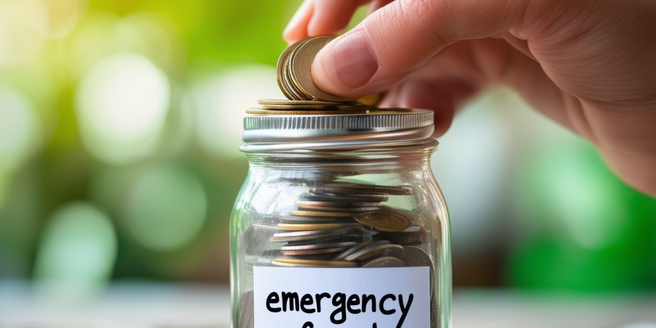Understanding the Impact of Unemployment on Your Finances
Unemployment can pose significant financial challenges. Without a regular income, meeting daily expenses, let alone saving, can become difficult. In some situations, you might be forced to make significant cutbacks that impact your quality of life. In this scenario, even essential expenses such as utility bills or groceries can start to seem burdensome. It’s also during such times that you might find yourself taking on credit card debt to manage these expenses. You may have to use your savings or rely on unemployment benefits, which may not be enough to cover all your expenses. Understanding how an unemployment period impacts your finances is crucial. It allows you to make informed decisions about spending and saving, and to devise strategies to cope with financial shortfalls.
Creating a Revised Budget Plan During Unemployment
When you lose your job, it’s important to revisit your budget. Initially, it might seem daunting but it’s a crucial part of managing your finances during unemployment. This could involve cutting back on non-essential spending, looking for ways to reduce your fixed costs, or finding new sources of income. Some of these potential income sources could be part-time or freelance work, selling items you no longer need, or even taking on a roommate to share living expenses. Remember to account for essential needs first – housing, food, utility bills, insurance. Try to keep some room in your budget for unexpected costs. The aim is to extend your financial resources as far as possible until you find new employment.
Strategies to Save and Maximize Unemployment Benefits
If you find yourself unemployed, it’s paramount to optimise your use of the unemployment benefits available to you by comprehensively researching the assistance offered by the government to which you may be eligible. Having a deep comprehension of how this system functions, including the limits of your benefits and the duration of your eligibility, can help you manage expectations and plan better for your unemployment period.
Moreover, frugality becomes even more crucial at these times, necessitating tough decisions like eliminating non-essential expenditures from your daily life and negotiating for better deals on recurring bills, like internet, utilities, or insurance premiums. This frugality can significantly extend your financial runway.
Every possible penny saved provides significant relief in your financial situation, with every little saving contributing massively to extend your finance’s longevity. The amalgamation of understanding your benefits and smart budgeting can ease financial pressure during the period of unemployment.
Exploring Additional Income Streams While Unemployed
Facing unemployment can be a challenging but also offers an opportunity to explore alternative income sources, reassess professional goals, and forge a path towards financial stability. Various avenues can be productively navigated during this period including online freelancing, the gig economy, selling unwanted items on sites like eBay, Craigslist, or Facebook Marketplace, or transforming a hobby into a business. Each option can ease financial strain and potentially open up unexplored career paths. Despite the tough period, with perseverance, creativity, and a positive outlook, unemployment can serve as a path to success.
Preparing for Future Employment: Investing in Education and Skills
Unemployment can serve as a wake-up call, highlighting the need to improve your skills. This period can be a valuable opportunity for self-improvement if seen as a chance to learn something new, enhance professional abilities, and keep up with industry trends.
One approach during this transitional phase is to devote time to further education or professional development. This can take various forms such as online courses, industry-specific certifications, or enrolling in degree programs. Thanks to e-learning, these opportunities are more accessible than ever.
Pursuing these activities does more than just keep you engaged, they help in sharpening your skills and expanding your knowledge. This doesn’t only fill any gaps in your abilities, but it also shows your commitment to continuous learning and growth.
These professional development endeavors significantly enhance your resume, turning it into a comprehensive story of your career journey and skills rather than just past jobs. Incorporating newly acquired skills into your resume makes you a more appealing candidate to potential employers. The pursuit of professional development provides a competitive edge in the job market, creating a stronger foundation for your future career success.



